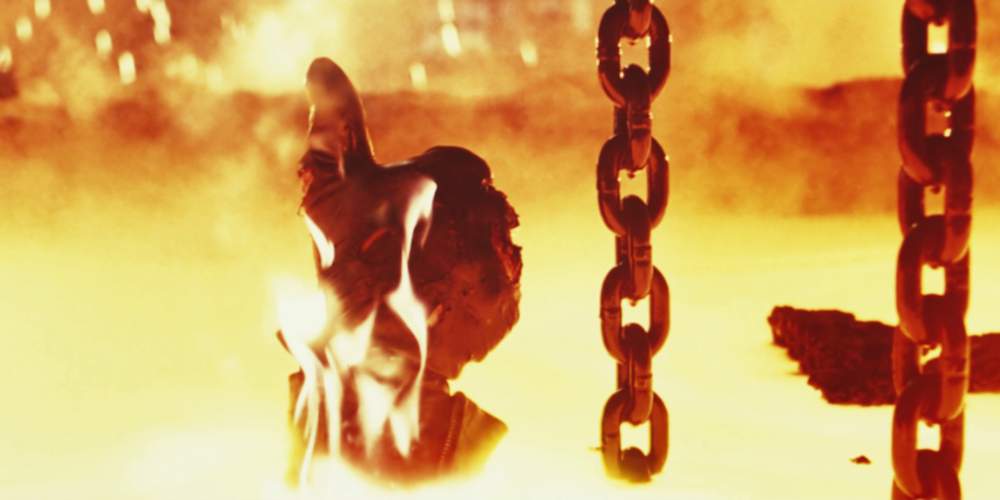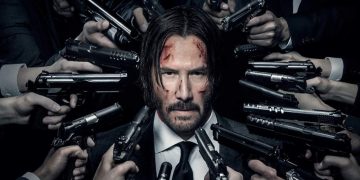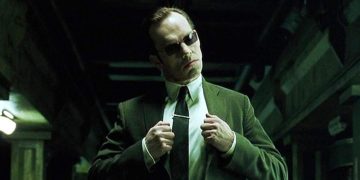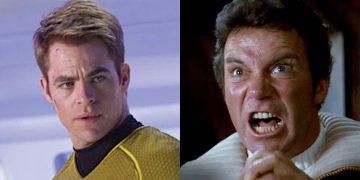We all die sooner or later, no matter the age or era. And yet, it's so difficult to accurately capture the essence and impact of death in film.
In many ways, cinema has made light of death—especially with minions and goons killed off in the blink of an eye. It's one reason why delivering an effective death scene that truly reminds us of our mortality can be the hardest thing to pull off, particularly in sci-fi movies.
The implicit suspension of belief required by the audience means that developing a tangible emotional connection with the characters is tough, leading to an element of detachment.
And so it's funny how certain sci-fi films, which take us far from modern reality, can cut us the deepest with their character deaths.
Here are our picks for the best character death scenes in sci-fi movies and why they each carry profound meaning.
8. Joe (Looper)
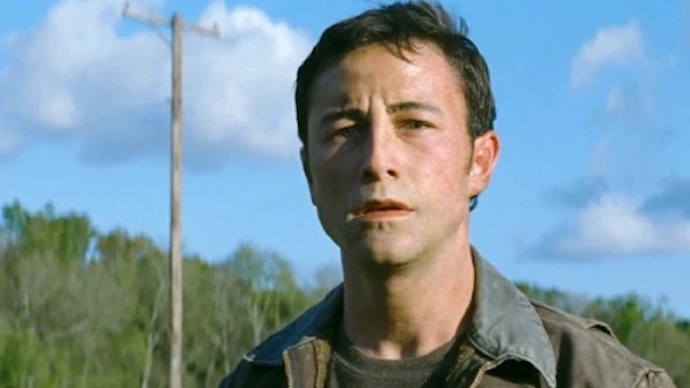
Looper took audiences by surprise when they first saw how in-depth the premise was: a mob hitman who killed people sent back from the future.
The story follows Joe, who hesitates when he's forced to "close his loop" and kill his future self, thus allowing his older incarnation to escape—and when he does, he causes chaos in the present.
Tasked with hunting down and killing his future self, Joe pursues older Joe and fully intends to close the loop... until he can't get to himself in time to stop the future.
From a distance, Joe sees it all unfold before his eyes as he realizes what's at stake unless he changes things right now—and so Joe turns his shotgun towards his chest and pulls the trigger without blinking an eye, dying a death that's truly meaningful in the process.
7. Obi-Wan Kenobi (Star Wars: A New Hope)
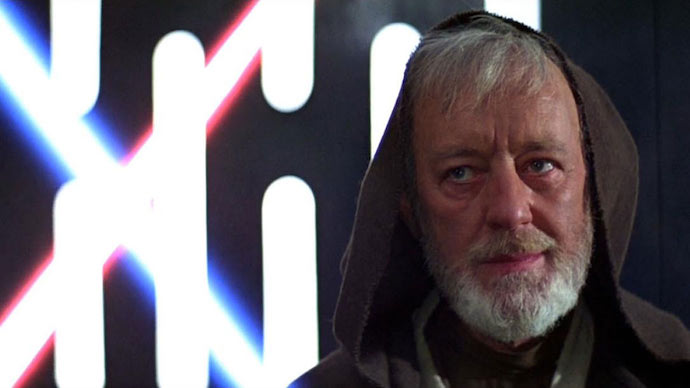
The death of Obi-Wan becomes more of an ascension into the Force in hindsight after completing the trilogy, which occurs when the legendary Jedi Master confronts his old apprentice aboard the Death Star.
During their duel, Obi-Wan knows he can't make it out of the station alive. He spots Luke who's on the verge of escape, and then gives Darth Vader a knowing smile before he vanishes into the Force as Vader attempts to strike a killing blow.
When you see what happens over the trilogy, you realize that this scene is really about what Obi-Wan knows about Luke and how he puts Luke on the path to redeeming his father.
And that can only happen if he dies. Obi-Wan's death came as he sacrificed his mortal self for the balance of the Force, with the iconic Jedi becoming wiser than we knew at the time.
6. Roy Batty (Blade Runner)
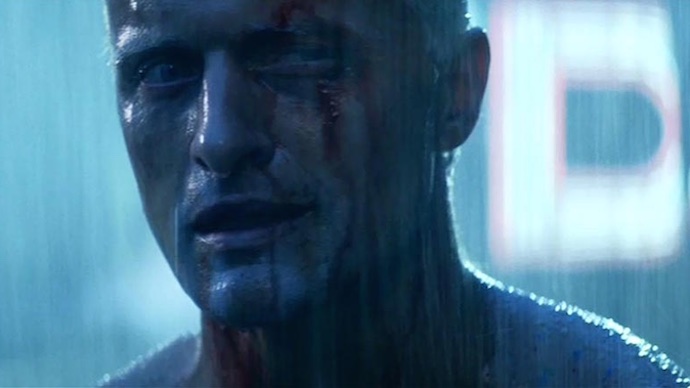
What is it to live, to be free from slavery, and to have your own choices? This is what Roy Batty wanted to know as he came to Earth and sought out an extension to his artificial four-year lifespan.
However, when told by his maker that an extension is impossible, he kills him out of anger. He returns back to his hideout to find that Rick Deckard has killed his last remaining friend, Pris—and so he hunts down Deckard through the maze of the vast Los Angeles building.
In the end, Roy finds Deckard hanging from the edge of the roof, about to fall to his death. But before Rick falls, Roy saves him at the last second and pulls him to safety, then tells Rick about his life and the things he's seen, all before passing away peacefully.
Roy's search for life had come to an end, and he knew in the moment that killing Rick would be a waste of the very thing he wanted so much, and that leaves Roy understanding its value.
5. Sam Bell (Moon)
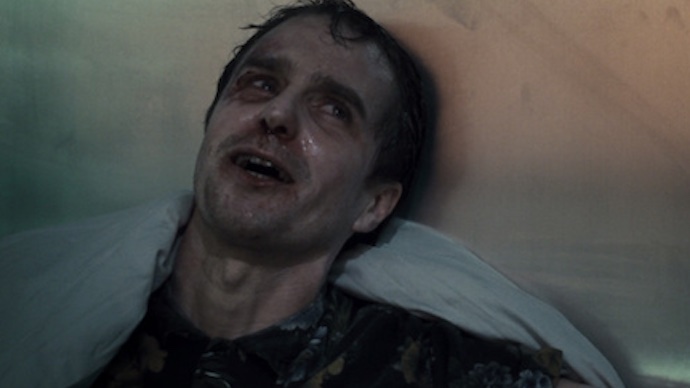
Sam Bell's life as the man overseeing a lunar mining operation is one that we initially believe will end soon, with Sam returning to Earth.
However, when Sam has an accident, his "faithful" artificial intelligence aboard the lunar station ends up waking a clone of Sam.
The new Sam finds the first Sam in his rover, still alive, and together they find out that the original Sam has long departed his mission and gone back to live his life on Earth. This leaves the two clones angry, with both having believed they were the original.
Together, they hatch a plan to go back to Earth to tell everybody about the cloning. But the first clone is growing sicker because of his limited lifespan, so he tells the new Sam to go instead of him while he faces the company men who are coming to the Moon to investigate.
4. Spock (Star Trek II: The Wrath of Khan)
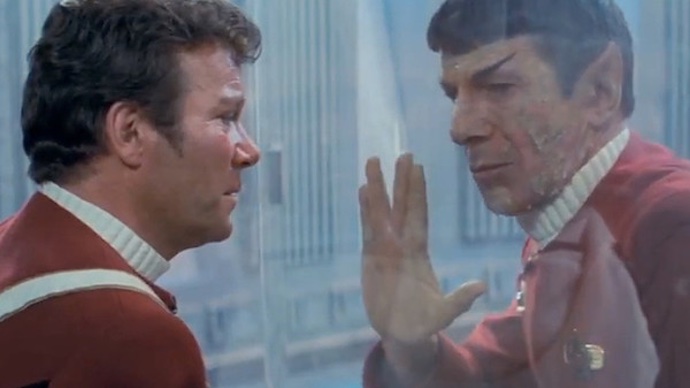
The death of Spock in Star Trek II: The Wrath of Khan came as a shock to fans, who believed that the main crew of the Enterprise would always come out unscathed against the forces they battled.
However, when Spock must fix the ship's core and expose himself to radiation in the process, he sacrifices his own life to save the ship. Spock knows that he'll perish because of the exposure, but does it anyway.
His final moments with Kirk, who talks to him through the glass, are emotionally charged. And when Kirk ejects Spock's coffin into space, we see the value of Spock's friendship to Kirk as he uncharacteristically breaks down during his eulogy.
3. The Terminator (Terminator 2: Judgment Day)
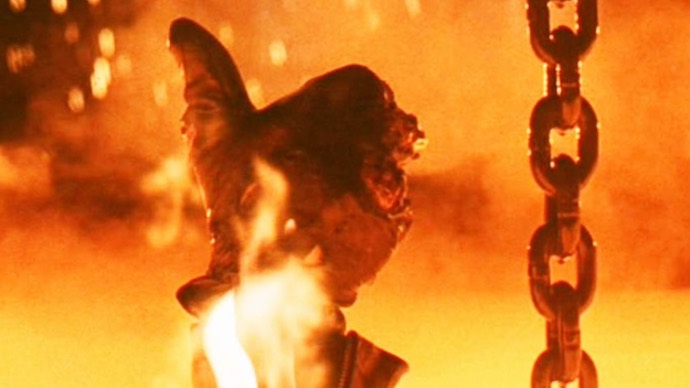
Viewers expected Terminator 2: Judgment Day to be an Arnold Schwarzenegger bullet-fest filled with quippy lines and relentless violence. And yes, it was that. But they didn't expect to walk out at the end with tears falling from their cheeks.
As the T-800 finally defeats the T-1000 by blowing it into the molten steel, the trio of John Connor, Sarah Connor, and The Terminator are left. They seem safe and it seems like a happy ending.
But then Schwarzenegger's Terminator reveals that he too must be destroyed to stop the future, and that's when John—and the audience—feel a deep pit grow in their stomach.
The whole film showcased the incredible bond that John shared with The Terminator, and John tries to order the machine to stay. The pure emotion of watching the boy see his best friend go is heartbreaking and as meaningful as any death in sci-fi.
2. The Woman (Under the Skin)
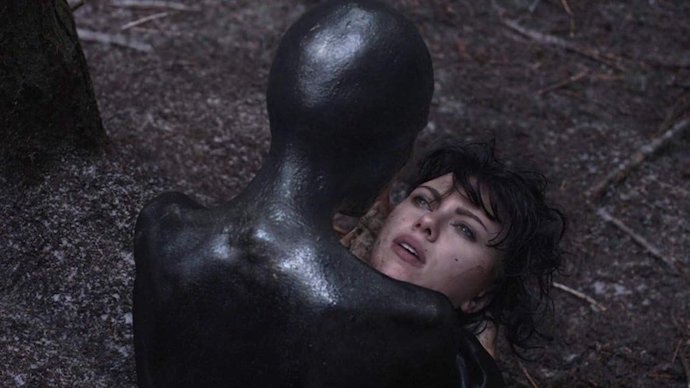
Under the Skin sounds like it should be a vapid horror flick: an alien drives around Scotland in a van to pick up men, whom she harvests for sustenance. But it's more than that. It's an intimate look at humanity and the unique nature of our deep emotions.
When Scarlett Johansson's The Woman begins to act strangely, trying to figure out humanity's various connective abilities and pleasure-seeking ways, she begins to try and have a human life.
In the end, a man attempts to rape her—and when he sees that she's not human, he sets her on fire. The creature dies while looking at the skin of the person it used, and it seems like the creature understands that humanity is beyond its comprehension.
The Woman's death is incredibly thought-provoking despite the violence behind it, which comes as a real shock to the audience because it showcases the worst of us, too.
1. Yoda (Star Wars: Return of the Jedi)
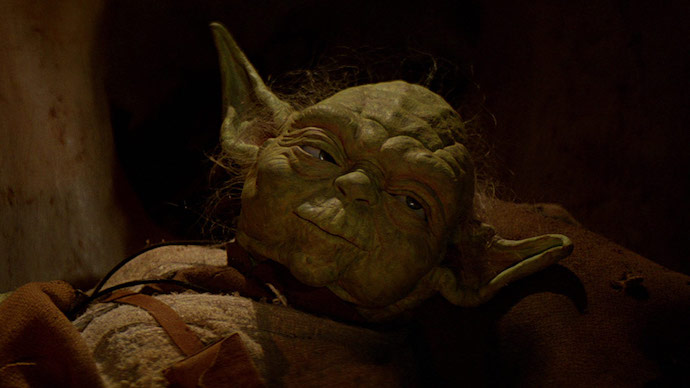
When one thinks of Yoda, one trait prevails above all other traits: his immense wisdom. As one imbued with a strong connection to the Force, Yoda has forethought beyond any other.
When Yoda finally reaches the end of his days, Luke asks him to confirm whether Darth Vader is indeed his father, Anakin Skywalker. Yoda is surprised that Vader told Luke the truth, but he confirms it.
He also tells Luke that it was unfortunate that Vader revealed himself, because he knew that Luke wasn't ready for the burden of the revelation.
Even in death, Yoda understood the way of the Force and gently gave his last student everything he needed to go forward and continue the Jedi tradition, knowing that Luke wouldn't fail him.
